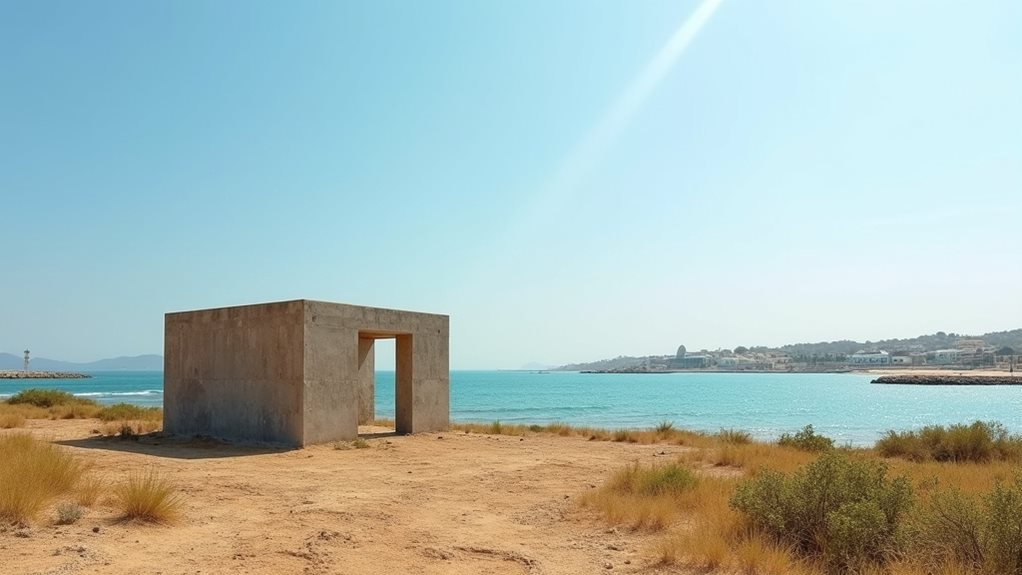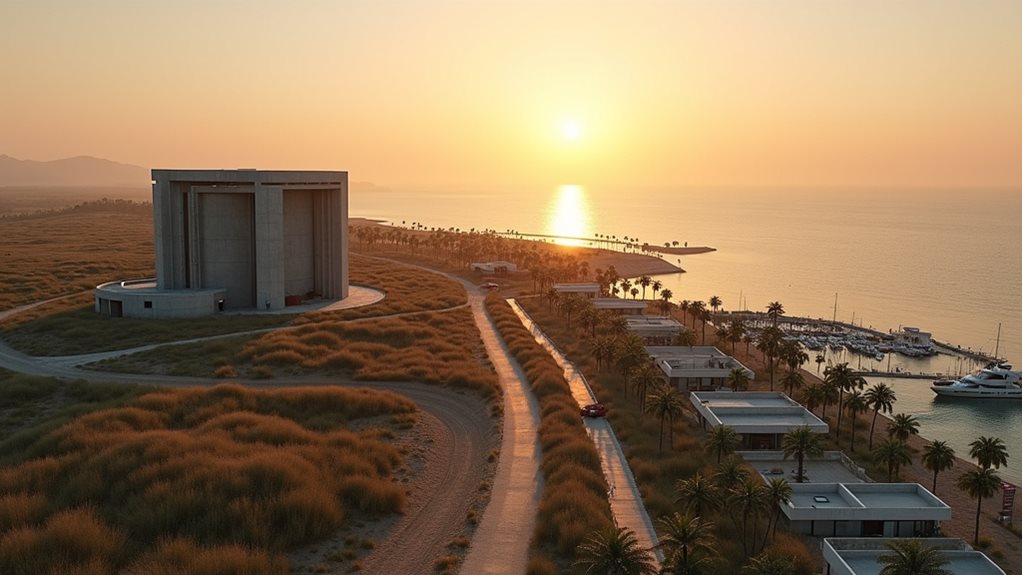Akon’s grandiose $6 billion crypto city in Senegal has officially flatlined. The government pulled the plug in mid-2025 after years of embarrassingly little progress—just three measly structures completed by 2024. His Akoin cryptocurrency flopped harder than expected. Now Senegal’s pivoting to something actually realistic: a $1 billion tourism hub with hotels, apartments, and a marina. Out with the crypto Wakanda fantasy, in with practical economic development that might actually happen.

When Akon announced his $6 billion crypto city in Senegal back in 2018, he painted a picture straight out of *Black Panther*. A real-life Wakanda, complete with solar power, skyscrapers, hospitals, universities, and theme parks. The currency? His own cryptocurrency, Akoin. Bold vision. Big dreams.
The Senegalese government allocated 136 acres of prime coastal land about 60 miles south of Dakar. Akon promised blockchain-powered innovation across Africa. Phase one was supposed to wrap up between 2023 and 2028. Full completion? A decade.
Here’s what actually happened. By mid-2025, Senegal’s government officially scrapped the project. Their reason? Lack of meaningful progress and unrealistic expectations. Ouch.
The numbers tell the story. Despite having a contract since 2020, only three things got built by August 2024: a youth center, a basketball court, and an information hub. That’s it. Six billion dollars down to a basketball court.
Akoin, the supposed currency of this crypto utopia, crashed and burned. Poor management killed any chance of adoption. COVID-19 didn’t help either, and fundraising became a nightmare. Senegal’s Sapco agency delivered the final blow, declaring the project “no longer exists.”
But Senegal didn’t give up on development entirely. They pivoted hard. The new plan? A $1 billion tourism hub that actually makes sense. Hotels, apartments, a marina, and a promenade connecting to a nearby lagoon. They’re using just 8 hectares of the original site – about 20 acres. The Mbodine site remains largely undeveloped, with only a half-finished reception building standing as a monument to unfulfilled promises. The government issued a final notice to Akon in August 2024 before officially canceling the original project.
This shift represents something bigger. Instead of chasing futuristic fantasies, Senegal chose concrete, incremental economic development. Smart move.
Akon’s crypto city dreams weren’t limited to Senegal. He pitched similar projects in Uganda and Kenya, both tied to Akoin. Uganda allocated land in 2021, but local resistance shut it down fast. Kenya’s partnership with Mwale Medical and Technology Smart City aimed to use Akoin as currency, though that’s a separate venture.
These failures highlight a harsh reality about crypto-powered smart cities in emerging African markets. Grand visions crash against operational hurdles and social resistance. Senegal learned this lesson and chose tourism over tokenomics. Sometimes the boring answer is the right answer.






